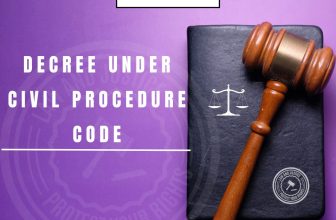
Interested in learning more about the enforceability of non-compete clauses in India? Read this post and find out whether non-compete clauses are enforceable or not!
Introduction
Non-compete clauses are contractual provisions that restrict a party, typically an employee or business associate, from engaging in activities that compete with the employer’s business during or after the termination of their relationship.
While these clauses are common in employment and business agreements worldwide, their enforceability in India is a matter of significant legal debate due to the constraints imposed by the Indian Contract Act, 1872.
Section 27 of the Indian Contract Act, 1872
A standard non-compete clause aims to restrict individuals, including employees, business associates, and partners, from engaging in competing activities that could result in financial or opportunity loss. These clauses typically define the duration, geographic scope, and nature of the restrictions.
In India, despite their prevalence across industries, non-compete clauses face significant legal challenges.
Courts have consistently emphasized that the right to trade, protected under Article 19(1)(g) of the Constitution, cannot be unduly restrained. Section 27 of the Indian Contract Act, 1872, declares such restrictive covenants void unless they fall within specific exceptions.
Section 27 of the Indian Contract Act states:
“Every agreement by which anyone is restrained from exercising a lawful profession, trade, or business of any kind is to that extent void.”
This provision reflects India’s strong public policy against restraint of trade, ensuring individuals have the freedom to pursue lawful occupations without undue restrictions. Unlike some jurisdictions, India adopts a strict interpretation of this principle, making non-compete clauses generally unenforceable.
Exceptions to Section 27
Despite its stringent language, Section 27 acknowledges limited exceptions.
Agreements involving the sale of goodwill of a business can impose reasonable restrictions on the seller’s ability to compete within specified geographical and temporal limits. These restrictions must be reasonable and not excessively broad to remain enforceable.
Factors Affecting Enforceability
Several factors influence the enforceability of non-compete clauses in India:
- Reasonableness: Courts assess whether the clause is reasonable in terms of duration, geographical scope, and nature of restriction.
- Legitimate Business Interests: The restriction must aim to protect confidential information, trade secrets, or goodwill, not merely to stifle competition.
- Proportionality: The clause must strike a balance between protecting the employer’s interests and ensuring the employee’s right to livelihood.
Cases on Enforceability of Non-Compete Clauses
Niranjan Shankar Golikari v. Century Spinning and Manufacturing Co. Ltd.
In this landmark case, the Supreme Court held that non-compete clauses operative during the term of employment are valid if they protect the employer’s interests without imposing an unreasonable restraint on the employee. The court drew a distinction between restrictions during employment and those post-termination, favoring the latter only in exceptional circumstances.
Superintendence Company of India (P) Ltd. v. Krishan Murgai
In this case, the Supreme Court ruled that post-termination non-compete clauses violate Section 27 and are void. The court reasoned that restricting an individual’s trade after the cessation of employment is against public policy and the fundamental right to livelihood.
Gujarat Bottling Co. Ltd. v. Coca-Cola Co.
The Supreme Court observed that non-compete agreements could be valid if they are ancillary to a primary agreement and serve to protect proprietary interests. However, such clauses must not impose unreasonable restrictions.
Conclusion
The enforceability of non-compete clauses in India hinges on a strict interpretation of Section 27 of the Indian Contract Act, 1872. While employers can impose reasonable restrictions during employment or to protect goodwill, post-termination restraints are largely void. To mitigate risks, businesses can include alternative provisions such as strong non-solicitation and confidentiality clauses. These alternatives are less likely to be invalidated under Section 27 of the Indian Contract Act.
FAQs on Non-Compete Clause
1. Are post-employment restrictions valid?
No, post-employment restrictions are usually not enforceable because they can interfere with an individual’s right to earn a living.
2. Are non-compete clauses valid?
Courts have ruled that non-compete clauses are against public policy and deprive people of their fundamental right to earn a living.
3. Is the non-compete clause enforceable in India?
No, they are not enforceable in India.
4. What is Section 27 of the Indian Contract Act?
Section 27 of the Indian Contract Act, 1872 deals with restraint of trade. If a contract imposes a restraint on an individual from practicing their lawful trade, profession, or business, it is generally considered void and unenforceable.
5. Are there any exceptions to Section 27 of the Indian Contract Act?
There are certain exceptions where restraint against trade may be considered valid, such as:
- Restraint in the Sale of Business: When a person sells their business, they can agree not to carry on a similar business in the same locality, provided the restraint is reasonable in terms of time, place, and scope.
- Restraint in Employment Contracts: While employers can place reasonable restrictions on employees (for example, preventing them from working with a competing business for a limited period after leaving the job), these restrictions must be reasonable in nature and should not be excessively restrictive.
6. Can a company stop you from joining a competitor in India?
Yes, a company can impose certain restrictions on an employee to prevent them from joining a competitor in India, but such restrictions must be reasonable in nature and scope to be enforceable.
The restriction should not be for an indefinite period but for a reasonable time, such as a few months or a year after leaving the company.
The restraint should not be overly broad in terms of geography. It should be limited to areas where the company has a genuine business interest to protect, such as where it operates or has customers.
The restriction should be specific to the role or activities that directly relate to the company’s competitive interest.






